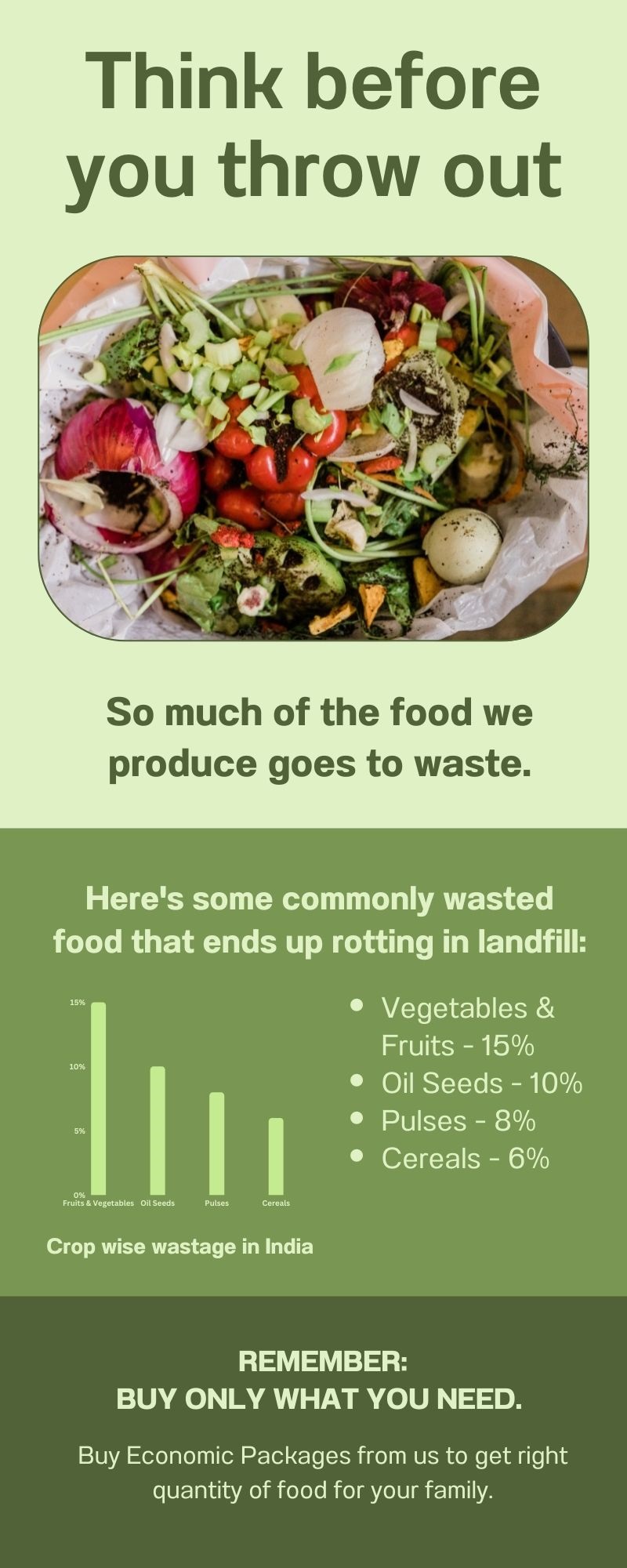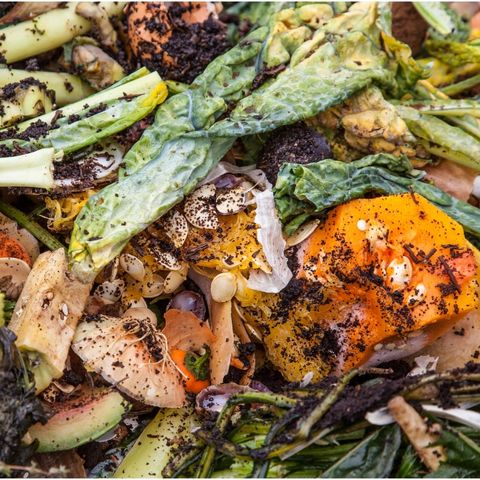We all know that food wastage is a big problem. But did you know that there are ways to stop it?
Food wastage is a global problem, and we can all do our part to help reduce it. Just think before you throw out that extra food! You can save money and help the environment at the same time.
Reduce food waste in your household by following these simple tips. From using up leftovers to shopping smarter, you can make a big difference. Learn how to Think before you throw out food and help stop wasting food.
In India, around 30% of food is lost or wasted.
This food wastage not only leads to food safety issues but also results in a loss of 3.3 million tonnes of wheat and rice, which is enough to feed 60 million people. This is a cause that needs to be tackled on priority.
With over 50% of fruits and vegetables lost in transit to supermarkets, food wastage is a big concern worldwide. United Nations FAO statistics suggest that nearly one-third of the food produced yearly for human consumption gets lost or wasted. A large proportion of food is lost or destroyed on the path between the farm and the fork. Approximately 1.3 billion tonnes of food, or one-third of global production, is lost or wasted annually. This blog talks about the issues of food wastage and how to tackle them.
Why do we waste so much food?
Food wastage is terrible for the environment and our pockets, but why do we do it? If you have ever stood in your kitchen and wondered why you have so much food in your fridge that you don’t want to eat, this blog post is for you. Most people waste food not from malice or ignorance but from a lack of proper strategies and planning. We’re all guilty of making spontaneous purchases, forgetting about the food in our fridge, and throwing out excellent food because we’re tired of looking at it. We’re creatures of convenience, and these habits have become a part of our lives. So, this is the time to take charge of your kitchen and stop wasting so much food.
Change doesn't have to be a big, overwhelming thing - it can come from small, manageable steps we take every day. One place we can start is our homes and, more specifically, our kitchens.
How much food is wasted in India?
Food wastage is a severe problem in India. According to a World Bank study, nearly a quarter of the food produced in India is wasted. Food is wasted at every step of the supply chain — from the farm, where fruits and vegetables are discarded before they reach the consumer because they are the wrong size or colour, to the grocery store, where shoppers buy more than they need and end up throwing out the rest. People cook more than what can be eaten at the consumer end and often throw out leftovers and scraps. The restaurant industry wastes more food because portions are usually prepared in excess.
Ways to reduce food wastage
One of the world's most significant crises is food industry waste. It is estimated that 1/3 of all food produced worldwide is wasted. This amount of food wasted is equivalent to 2 billion tons every year. This is a problem that has to be addressed and one that needs to be discussed by everyone. The average consumer can make a difference by reducing the food they waste while shopping. People can also make a difference by reducing the amount of food they waste when cooking or even when they are eating the food they have cooked.
It's a common misconception that you can't reuse or recycle food. While it's true that the food doesn't taste as good, it’s not true that you can’t recycle food. If you can’t eat it, don’t throw it out. If you can’t finish that much food at a restaurant, you can ask to take it home and eat it later. Also, you can request a smaller portion to get more food (and more variety) for the money. If you go grocery shopping, you know that vegetables and fruits go rancid quickly, so it’s a good idea to buy them in small quantities and use them quickly. Another way to reduce food wastage is to learn how to freeze food. If you have frozen food, it is not spoiled yet. You can thaw it and use it later, so freeze your leftovers and use them quickly.
How can we solve this problem?
Around the world, 1 in 9 people go to bed hungry, and more than 3 billion tons of food is lost or wasted each year. This is an incredible amount of food. This is also a huge problem, especially for the environment. Food that ends up in landfills decomposes and releases methane into the environment. Methane is a potent greenhouse gas that contributes to climate change. That is why it is essential to stop this food waste. Even a little effort on your part can add up to a significant impact if we all start doing it. So let's do our part today to stop food wastage.
We are undoubtedly living in one of the most prosperous times in history, where we can have all of the comforts of home delivered right to us. We have more than enough food and drink available, but we are still throwing out more than enough to feed the billions in the world who are starving. It is time to start thinking before we throw out! We hope that you have enjoyed our post on food waste. Check back next blog to see what we are talking about!
Be Blessed!
Nalini Murthy
Next Steps
Monthly Packages
To help you make the best choices for your economic monthly food package, we have various options that will give you the correct quantity of food daily. This way, you can be sure you're taking the right amount of food and avoiding any waste.





